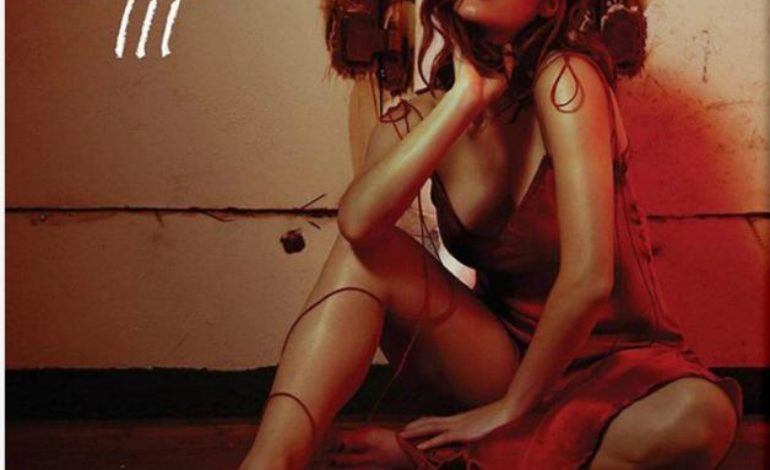

Seventy-three degrees Fahrenheit
Banks is a California singer and songwriter, and III is her third full-length album. Her fans embrace her as a pop star, even if she isn’t quite as popular or well-known as Alessia Cara, or even Grimes. On III, she continues to make the contemporary electropop and R&B for which she is known.
Banks’ music has slightly more leftfield production than the Alessia Caras and Bebe Rexhas of the world, including heavy, distorted beats and odd samples. However, these distortions are only surface level, as Banks’ music doesn’t carry any extra subtleties or complexities than the usual affair at Urban Outfitters. She has a slightly-higher-pitch-than-average voice, with a rasp when she strains; there isn’t much more to say because Banks makes frequent use of auto-tune, thus hiding her voice from comment. Being a singer-songwriter, Banks’ lyrics are a bit more intimate than usual. The album’s concept covers Banks’ past relationships and the various events and emotions related to them, pre-breakup and post-breakup.
The most unbearable aspect of this album is the shocking overuse of auto-tune. Auto-tune should be utilized as an instrument, perhaps similar to the vocoder, not as a crutch for vocalists. When used incorrectly, auto-tune dilutes the emotional potency of music, by making the vocalist, oftentimes the most human element in the mix, sound synthetic and sterile. Banks does not necessarily need the auto-tune, but because the album showcases auto-tune so frequently without artistic merit, there doesn’t seem to be another good reason for it. To make the situation even more perplexing, there is an appropriate usage of auto-tune on the album. On the opener “Till Now,” Banks sings a little six-note tune over and over with auto-tune, while warped, monster vocals are gradually layered on. Although the goal of creating a tense and otherworldly atmosphere is not very successful, at least it is clear there was an attempt to do something interesting with the sound of auto-tune. Elsewhere on the album, like on “Look What You’re Doing to Me” and “Hawaiian Mazes,” Banks sounds like a robot horribly failing to make compelling pop music.
There are many other strange and dislikeable production choices on III. Take the song “Stroke” as an example of how not to use vocals. Some muffled vocals do nothing but hang in the background. Other warped, pitch-shifted vocals appear throughout the song which, while ear-grabbing, also seem rather pointless. Last but not least, on multiple tracks, the bass distortion is so heavy that it crackles the speakers, rumbling like a building collapsing. This might work in the club, but it is really obnoxious in a quieter location.
Banks does manage to deliver a few highlights. On “The Fall,” Banks surprises everyone with her rapid-fire sing-rapping, containing some impressive rhyme and alliteration schemes. “Contaminated” begins with some contemplative keyboards, and Banks’ voice at a whisper, laying a groundwork of tension. The song slowly builds in volume. Her voice is syrupy on the hook, and almost sounds defeated. The use of reverb combined with vocal layering gives off a sense of grandness and ominous foreboding; Banks sounds like the angel of death. “Propaganda” might be the best total package. The rhythm guitar and synth leads are nicely put together. Banks gets a little raspier than usual on the microphone, singing about suicidal thoughts post-breakup. One vivid lyrical moment: “The windows don’t make sound.” It is a dark dancefloor rager akin to Madonna’s “Papa Don’t Preach.”
Lyrically, the album often gets too repetitive or immature. Repetitive hooks occur too frequently, most frustratingly on “Hawaiian Mazes” and “The Fall,” songs which would have otherwise been very good. The relationship concept takes a turn for the worst on the closing track, when Banks desperately (and hilariously) begs her ex-lover, “Baby, if you just relearn my name…,” as if that one moment of recognition could make everything right again. In general, Banks does not describe her relationships in a way that separates her from every other singer-songwriter writing about love.
Banks has potential, with her singer-songwriter flair and leftfield production and sampling. However, bad production choices, overuse of auto-tune, repetitive lyrics and general blandness brings down the experience of III. In conclusion, the music of III is just above room temperature, but not hot enough to trigger the thermostat, and certainly not enough to spark a fire.
